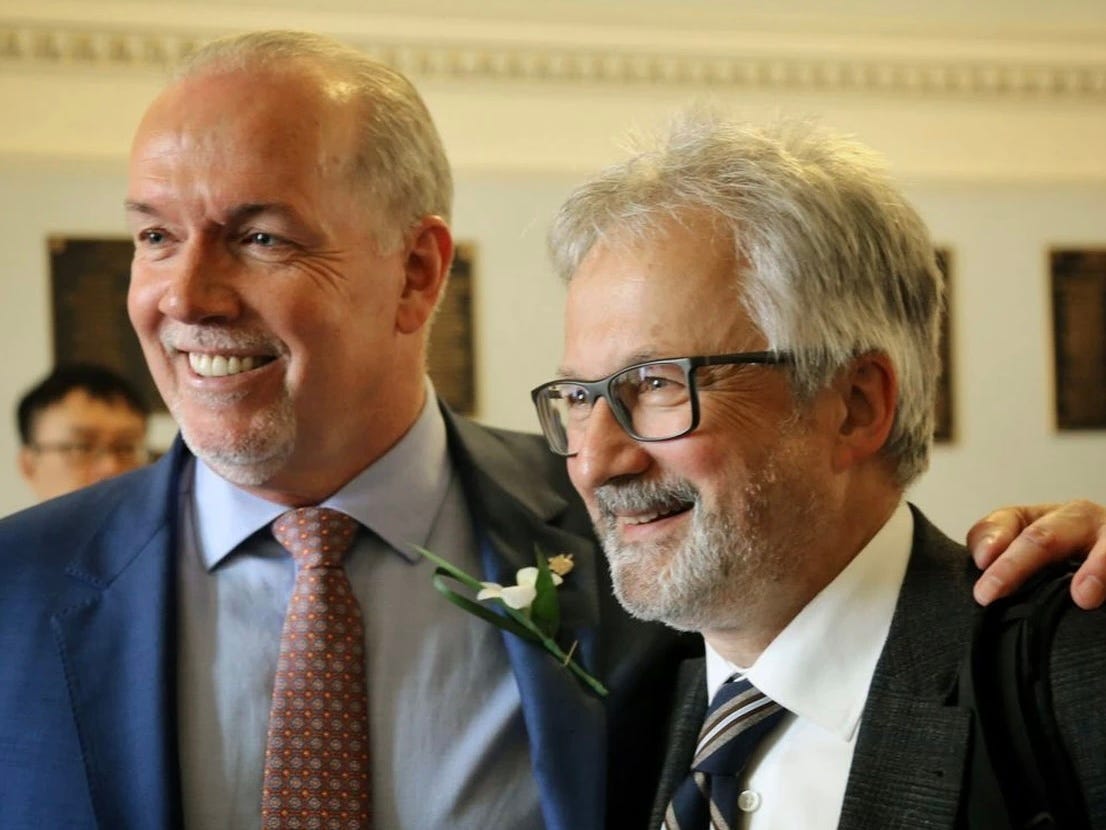John Horgan believed most British Columbians are New Democrats, they just don't know it yet
The broad outpouring of grief and affection for an unapologetic NDP partisan are a tribute to his drive to win power for all the right reasons

The sudden, tragic death of former Premier John Horgan, finally overcome by a third bout of cancer on November 12, triggered an outpouring of grief, affection and gratitude for all that he had achieved for the province during his f…
Keep reading with a 7-day free trial
Subscribe to LOTUSLAND to keep reading this post and get 7 days of free access to the full post archives.


